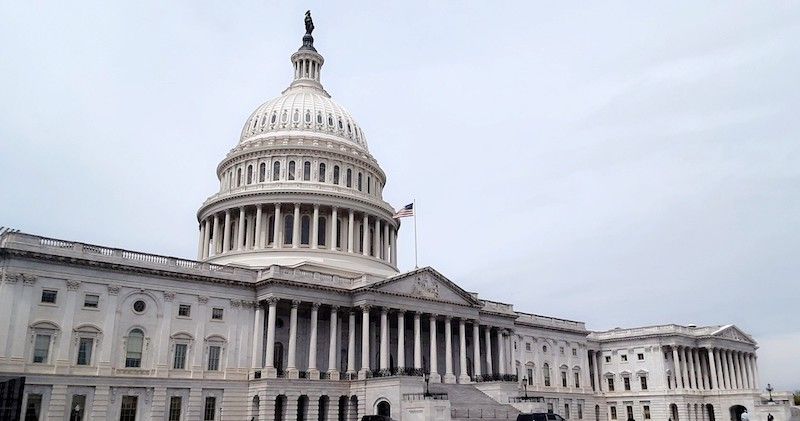Will anything pass this session? Federal privacy legislation update, November 28

Over 90 organizations have signed on to a letter led by the Center for Democracy & Technology (CDT), Electronic Frontier Foundation (EFF), and Fight for the Future opposing the Kids Online Safety Act (KOSA). Signers include local and national LGBTQ and human rights organizations including the ACLU, American Library Association, Equality Texas, Equality California, Equality Virginia, Equality Utah, GLAAD, GLSEN, National Center for Lesbian Rights, Human Trafficking Prevention Project, Internet Society, Ranking Digital Rights, the Tor Project, TransOhio, Georgia Equality, Wikimedia Foundation, New America’s Open Technology Institute, and National Health Care for the Homeless Council.
The letter explains how KOSA would harm LGBTQ+ youth especially, and could be weaponized by Attorneys General to censor online resources and information for queer and trans youth, people seeking reproductive healthcare, and more:
– More Than 90 Human Rights and LGBTQ Groups Sign Letter Opposing KOSA, CDT
The 117th US Congressional session is close to wrapping up, with just a few more weeks of legislating time before the winter holiday recess. The big focus will be on two pieces of "must-pass" legislation: the omnibus spending bill and the NDAA (National Defense Authorization Act). The Senate also has a lot of judges to confirm, as well as confirm key Biden nominees like Gigi Sohn (whose appointment has been stymied by Republicans and centrist Democrats, leaving the FCC deadlocked 2-2). So there's not a lot of time for other legislation.
Still, supporters of several privacy bills are saying they still have a chance to pass this session – either as standalone bills, by going through the usual committee and floor vote process, or attached to one of the "must-pass" bills as amendment. Of course, supporters kind of have to say that, no matter what the bill's prospects, so it's hard to know what if anything to read into it.
So take it with a grain of salt – most people I talk to think it's not likely that any significant privacy bill will pass this session – but there are at least five bills potentially in play:
- The Fourth Amendment Is Not For Sale Act has broad support from legislators in both parties as well as privacy, civil rights, civil liberties, consumer, and media justice groups. By preventing law enforcement and intelligence agencies from buying data without a warrent from data brokers and tech companies, it closes a huge loophole that lets commericial surveillance companies profit from helping the goverment do an end run around the Constitution. The votes are almost certainly there for the Fourth Amendment Is Not For Sale Act but Democratic leadership hsan't prioritized it.
- The Kids Online Safety Act (KOSA) lets the government control what children see online, and would be especially harmful for LGBTAIQ2S+ youth. There's no question that big tech harms and exploits kids and teens, and many of KOSA's supporters are well-intentioned, but the bill itself would be disastrously bad. That said, the bill has bipartisan support and the "think of the children!" argument can be hard to counter. So KOSA may have a better chance than some of the other bills.
- The American Data Privacy Protection Act (ADPPA), a broad consumer privacy bill, has been stuck since 2019 over the issue of whether or not to preempt current and future privacy laws in California (and other states, but California has 50 House votes, and Speaker Pelosi is from California, so that's been the major focus). As I discussed in two weeks ago in The elephant and the lame duck, even if the preemption issues were somehow magically resolved, there are other important problems including the elephant ADPPA supporters don't want to talk about: ADPPA doesn't protect people seeking abortions or reproductive health care providers. But ADPPA has a lot of support, from big tech as well as from some national privacy and civil rights groups. Here in Washington state, big tech shenanigans to try to sneak privacy bills are something of a tradition – in 2021 for example the Bad Washington Privacy Act's prime sponsor tried to hold funding for eviction protection hostage as part of last-minute negotations – so even though ADPPA seems like along shot at this point we'll see what happens.
- Senate Commerce Committee Chair Maria Cantwell has said she's going to give push for the Children and Teens Online Privacy Protection Act (CTOPPA, also known as COPPA) in the lame duck, and the opposition to it has been less vocal than KOSA. That said, it's a much bigger bill than KOSA from a privacy perspective, and big tech is likely to resist it fiercely, so it almost certain has less of a chance thank KOSA
- The Informing Consumers about Smart Devices Act passed the House back in June, and Senators Ted Cruz and Maria Cantwell recently introduced it in the Senate. This is a narrowly-focused bill would require the FTC to create reasonable disclosure guidelines for products that have audio or visual recording components that are not clearly obvious – including refrigerators, washers, dryers and dishwashers. There's not likely to be any significant opposition to this bill, and if Congress wants to say they've done something about privacy, this would be the path of least resistance.
Like I say, most people I talk to think nothing significant is likely to pass. The Informing Consumers about Smart Devices Act is a bit of a wild card but it's also a bit of a whatever – disclosure is good, but by itself it doesn't do much to protect privacy. Anything bigger ... well it's not impossible, but there's so much else going on that it's likely to be very challenging even in the best of circumstances.
Then again, you never know. As we say in here in Washington state, it ain't over till it's over.
